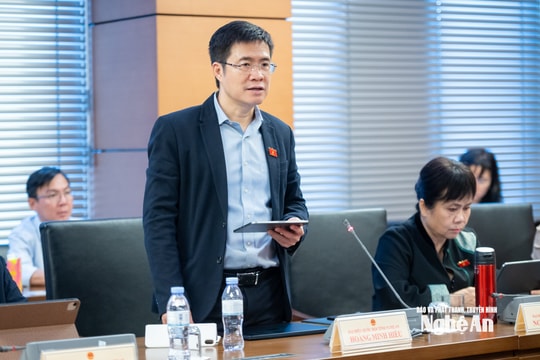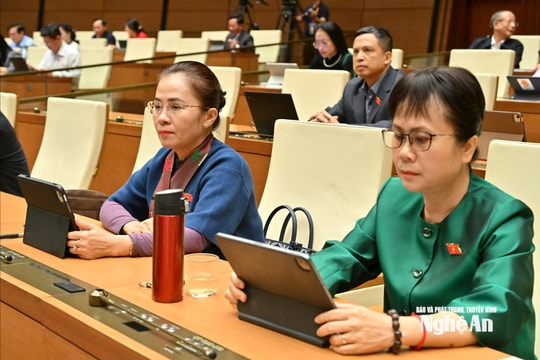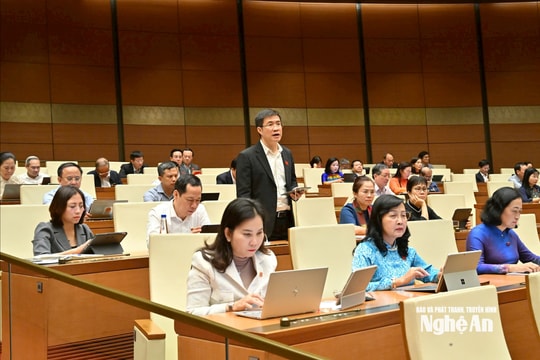National Assembly delegates from Nghe An province proposed many contents on protecting state secrets and network security.
On the afternoon of October 31, the National Assembly continued to discuss in Groups about 3 draft laws: Cyber Security; Protection of State Secrets (amended); Amendments and supplements to a number of articles of 10 laws related to security and order. The National Assembly delegation of Nghe An province discussed in Group 7 with the delegation of Lam Dong province.
.jpg)
Giving comments on the Draft Law on Protection of State Secrets (amended), delegate Thai Thi An Chung - Member of the Provincial Party Executive Committee, Deputy Head of the Delegation of National Assembly Deputies of Nghe An province basically agreed that the content of the draft Law was built with a balanced perspective between the goal of protecting State secrets and citizens' right to access information.
However, delegates said that some regulations in the draft are still quite general and need to be specified to avoid unnecessary abuse of "confidential" stamps.
Specifically analyzing the scope of State secrets related to the fields of finance, budget and banking, the delegate said that it is still quite general. According to her, the current State Budget Law has clearly stipulated the contents that must be made public such as estimates, final accounts, financial plans, etc.
If the expression “information on finance, budget, banking” is kept, it will easily lead to a situation where agencies and units can arbitrarily apply the secret seal to documents that do not really affect the national and ethnic interests. The delegate suggested that financial and budgetary information related to security, national defense, and foreign affairs should be limited to the scope of State secrets.
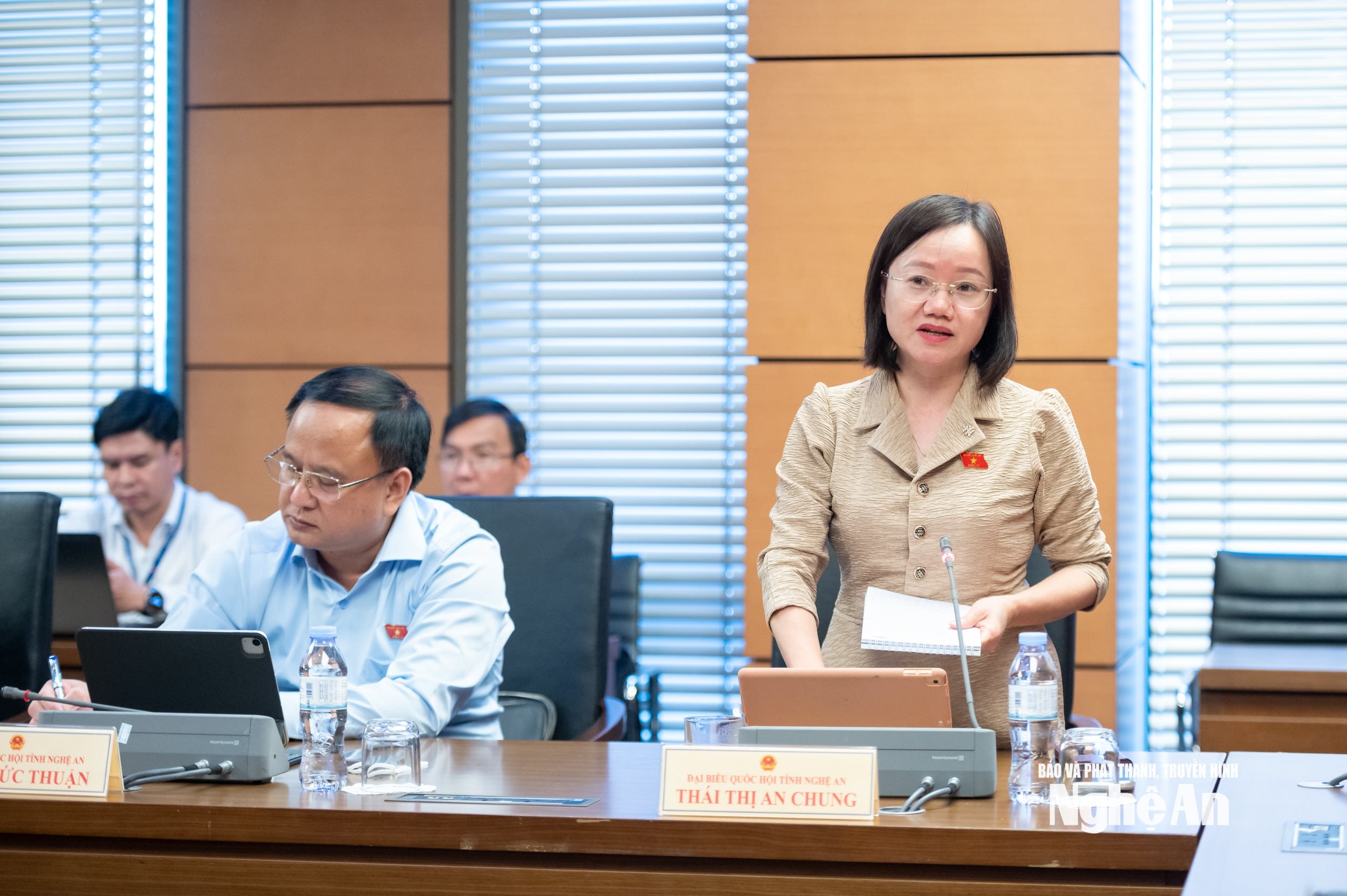
Regarding the regulations on State Audit information, Ms. Thai Thi An Chung said that it is also necessary to narrow the scope appropriately, because according to the State Audit Law, only audit contents and results that have not been officially announced are classified as confidential.
Meanwhile, audit reports after being issued must be made public and have mandatory value for implementing audit conclusions; therefore, the scope of State secrets in the auditing field should only be regulated as contents related to national defense and security and not yet officially announced.
In addition, the delegate of Nghe An delegation requested to clarify the regulations on information in the field of natural resources and environment. According to her, the contents related to water resources, environment, geology, minerals, meteorology, hydrology, land, sea, islands, surveying and mapping need to be clearly defined which parts are State secrets and which parts need to be made public to avoid overlap and difficulty in application.
Referring to the regulation: The Prime Minister issues an administrative decision regulating the List of State secrets in the draft Law, delegate Thai Thi An Chung said that, if compared with the Law on Promulgation of Legal Documents, the List of State secrets has long-term stability, related to sanctions for violations, so the issuance should be carried out in the form of legal documents, not administrative documents; thereby, suggesting that the drafting agency continue to research and clarify this content.
Major General Tran Duc Thuan - Deputy Chairman of the National Assembly's Committee on National Defense, Security and Foreign Affairs, from the perspective of the review agency, exchanged some important information about the above three draft laws.
In particular, regarding the Cyber Security Law Project, Major General Tran Duc Thuan emphasized the urgency of amending and perfecting the legal framework in this special field.
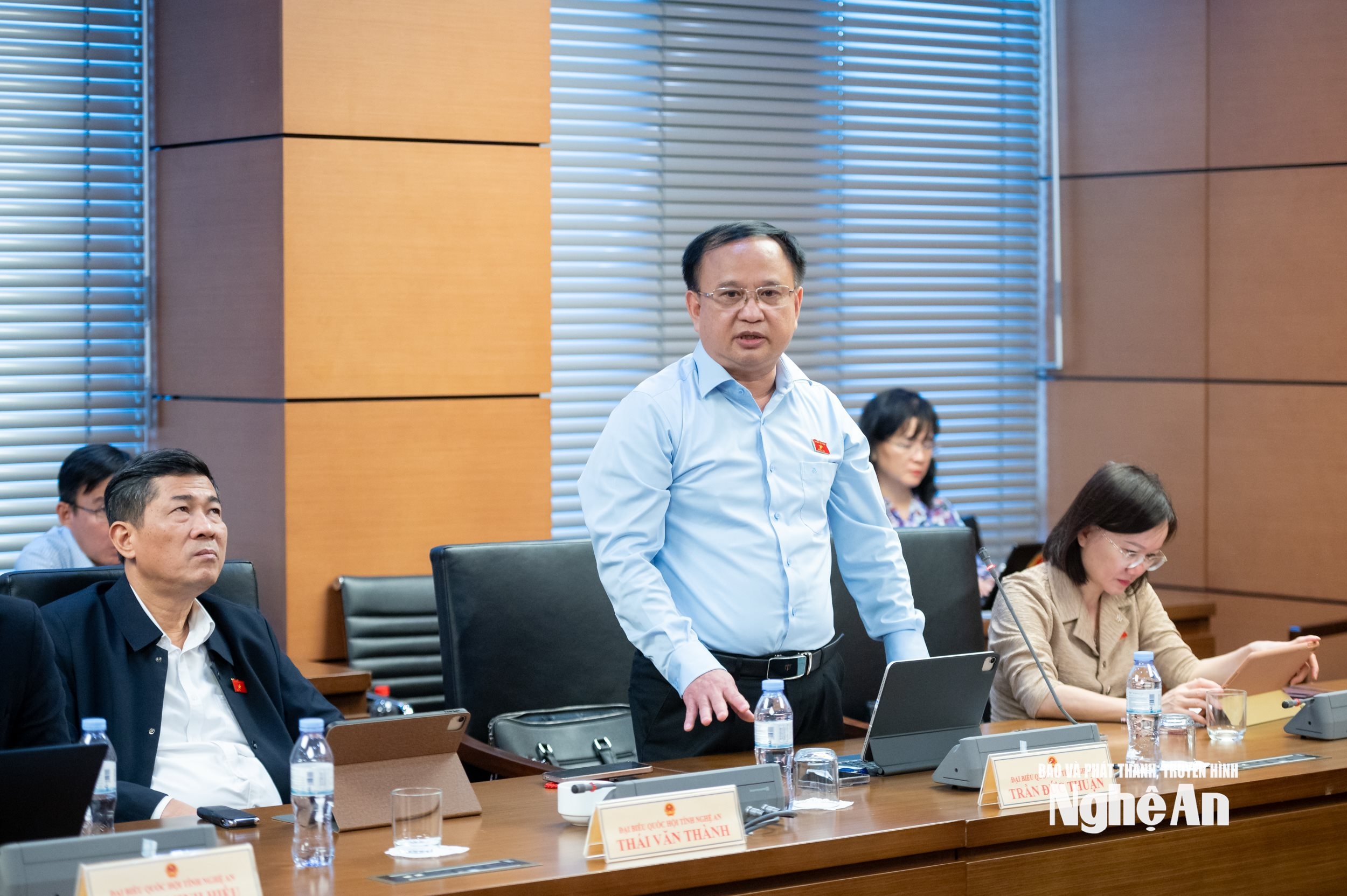
He said that not only in Vietnam but all over the world, cyberspace has been identified as a national strategic infrastructure, playing a vital role in security, economy, politics and society.
General Thuan said: Currently, cyberspace has become the “fifth combat environment”, along with land, sea, air and space. Modern wars all start with cyber attacks to neutralize the command system of the enemy country.
Recently, Vietnam has also had to deal with many large-scale cyber attacks, while hostile forces have taken advantage of cyberspace to sabotage the Party and State, distort and infringe upon the legitimate rights and interests of organizations and individuals.
From the above practice, Major General Tran Duc Thuan affirmed that the promulgation of the Law on Cyber Security is an inevitable requirement, aiming to fully institutionalize the Party's guidelines and policies on protecting national sovereignty in cyberspace, as well as developing science and technology, digital transformation and protecting national data.
According to the delegate of Nghe An, the law will contribute to comprehensively protecting the Fatherland in the digital age: maintaining national defense and security, promoting economic development, building a healthy culture; at the same time, strengthening the capacity to fight and defeat all plots and sabotage activities of hostile forces in cyberspace.

